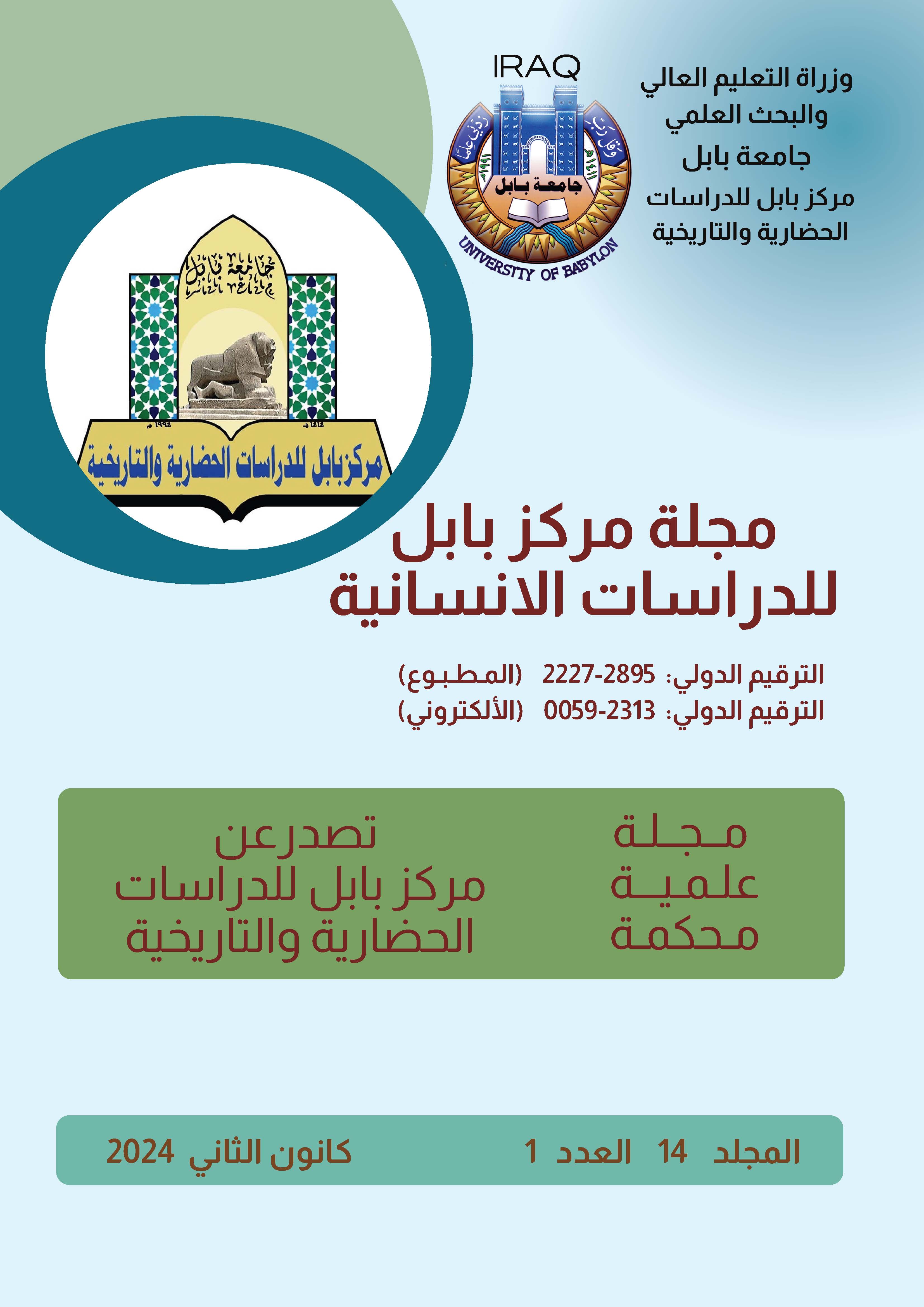التناص القرآني في مدائح النبي (ص ) وأهل البيت ( ع ) عند الصاحب بن عبّاد
الكلمات المفتاحية:
التناص القرآني، الصاحب بن عباد، المدائح النبوية، مدائح أهل البيت، محمد بنيس، جوليا کريستيفا، الاجتراري، الامتصاصي، الحواريالملخص
التناص هو ذلك المصطلح النقدي الذي طرحته أول مرة الباحثة اللغوية البلغارية جوليا كريستيفا، وكان ذلك أواخر الستينات من القرن الماضي فتناوله الباحثون بتعريفات وتوصيفات متعددة ومختلفة، حتى شاع استخدامه في النقد العربي المعاصر، وقد تم تطبيق نظرية التناص على كثير من نتاج الشعراء في مختلف العصور الأدبية، يهدف هذا البحث معتمداً علی المنهج الوصفي التحليلي إلی دراسة التناص القرآني في مدائح النبي (ص) وأهل بيته الكرام (ع) عند الصاحب بن عبّاد، من خلال قواعد البحث التناصي الحديث حسب منظور الناقد محمد بنيس ومستوياته الثلاث (الاجترارية والامتصاصية والحوارية) وما يقابلها من مستويات الناقدة جوليا كريستيفا وهي (النفي المتوازي والجزئي والكلي)، تشير نتائج هذا البحث إلی ارتفاع نسبة مستوى التناص الاجتراري من النصوص القرآنية، لكن من خلال إبداع وتصوير جديد، فالشاعر يُعيد الجمل والألفاظ والمعاني القرآنية بإبداع منسجم ومتناسق مع دلالته القصدية في النص الشعري، فقد تعالق النص القرآني مع نصوص الشاعر تعالقاً وثيقاً بصورة خاصة والنص الديني بصورة عامة، حيث اصطبغ ديوانه الشعري بصبغة دينية خالصة متخذاً من الجانب العقائدي التشييعي مساراً ومنطلقاً لهذه المدائح، كما ظهر في البحث ارتفاع نسبة التناص الداخلي للنصوص القرآنية، فالشاعر يعيد الاجترار مرات متعددة وبصور شعرية إبداعية مختلفة وهذا إن دلَّ إنما يدل على عقيدة حقيقية صادقة ومنهج اتباع راسخ وفق حجة واستدلال قرآني، هذا والحمد لله رب العالمين هو الموفق والمعين.







